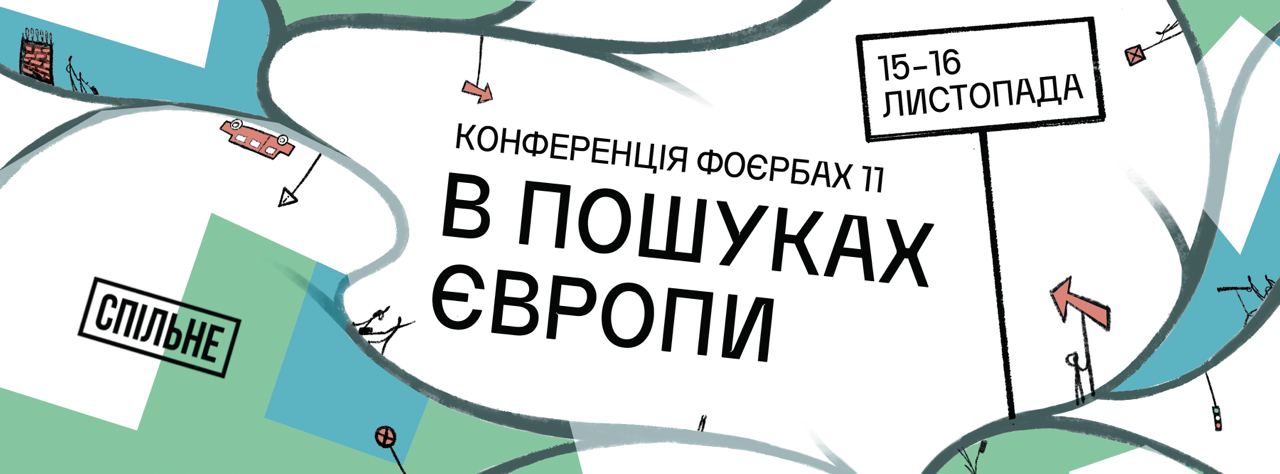On February 28, 2022, Ukraine submitted its application to join the European Union, and already on June 23, the country was granted candidate status.
The Russian invasion became a turning point in the process of European integration. Today, the question of belonging to Europe is no longer merely a matter of geography. We must rethink what Europe means — is it a space of peace, democracy, and human rights, or a borderless market for capital increasingly walled off from migrants, a battleground of imperial interests and the rise of far-right movements?
Therefore, we invite everyone to join us on November 15–16 in the search for Europe — and its alternatives!
More about the events within the conference:
(Un)making Europe: borders, displacement, citizenship
November 15th, 14:00 (EET)
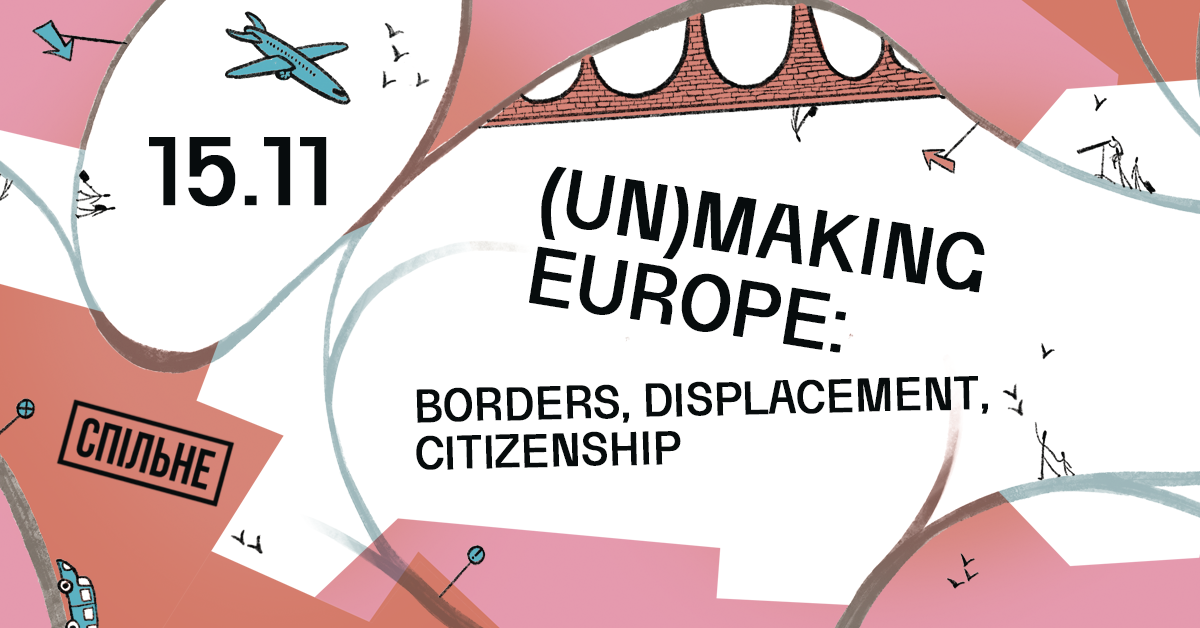
While Europe is often framed as a space of integration, mobility, human rights and democracy, it is equally shaped by exclusionary practices, border regimes, and deepening inequalities.
At he first panel discussion of our conference, we will explore the tensions at the core of the European project and its ongoing formation, focusing on questions of citizenship, borders, and displacement. Turning attention to Europe’s eastern border, we consider how approaching “Souths and Easts” as method can illuminate the varied and uneven geographies of Europeanisation.
Ultimately, we ask: can Europe become a space of transnational solidarity, or will it merely hold fast to the reproduction of its structures of inequality and exploitation shaped by the colonial and imperial past?
Speakers:
-
Daria Krivonos, postdoctoral researcher at University of Helsinki.
-
Elisa Pascucci, senior researcher at Tampere University.
-
Oleksandra Tarkhanova, research associate at University of St. Gallen.
-
Étienne Balibar, professor emeritus at University Paris Nanterre.
Moderator: Daria Saburova, postdoctoral researcher at Central European University.
Environment and the overriding public interest
November 15th, 17:00 (EET)
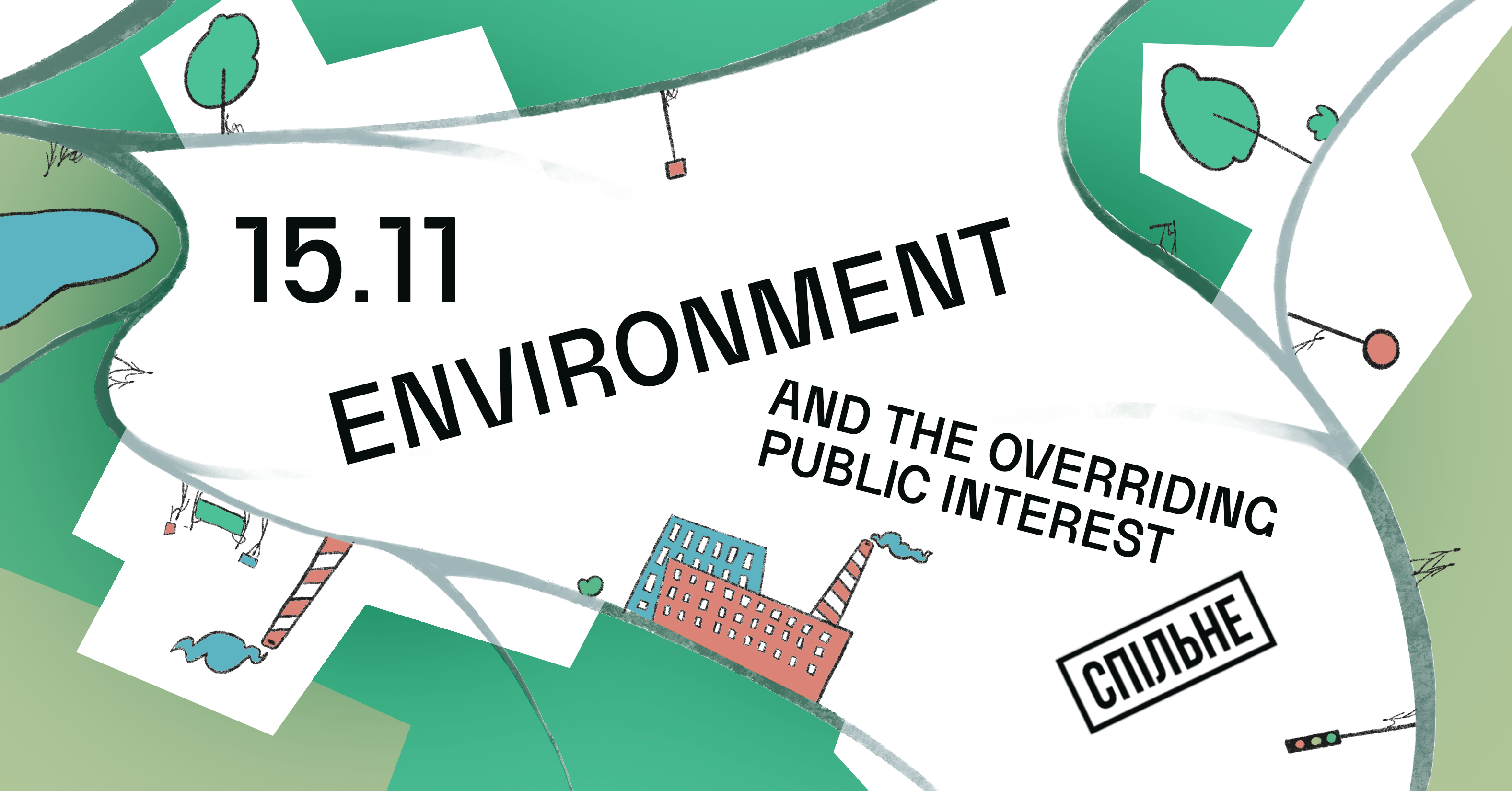
EU and Ukrainian legislation recognize environmental protection as a matter of public interest and grant it broad legal safeguards. In this context, Ukraine — continuing its path as an EU candidate country — is implementing environmental and energy reforms at an accelerated pace, even in times of war.
These processes raise a number of complex questions at the intersection of European integration, immediate security, and the fight against the climate crisis:
– What should be prioritized when the public interest of environmental protection clashes with other public interests?
– Does food security justify the intensive use of pesticides?
– Should we use mountain ridges for wind turbine construction to strengthen energy independence?
– Where and how can we find the balance between the right to a healthy environment, climate justice, and other public interests in this extraordinary time of war?
– And, ultimately — must there always be contradictions here?
Speakers:
-
Victor Havrylenko, Head of the Wildlife Diversity Conservation Laboratory at the Askania-Nova Biosphere Reserve, Director of the Reserve (1990–2021), Honored Environmentalist of Ukraine.
-
Serhii Hryniov, Vice President of the Beekeepers’ Union, serviceman.
-
Oksana Stankevych-Volosianchuk, PhD in Biology, Environmental and Nature Conservation Expert.
-
Yurii Zadorozhnyi, Environmental Impact Assessment Specialist at the NGO “Ecoclub”.
-
Olena Kravchenko, Executive Director of the International Charitable Organization “Environment-People-Law”.
Moderator: Olha Boiko, facilitator. From 2019 to 2025, she coordinated the international network Climate Action Network EECCA, worked for four years on the Ukrainian Climate Network Council, authored articles on decolonization and climate justice, and participated in the Dalán Participatory Fund.
Straight into the Abyss: The Rise of Authoritarianism and the Hope for Democracy
November 16th, 14:00 (EET)
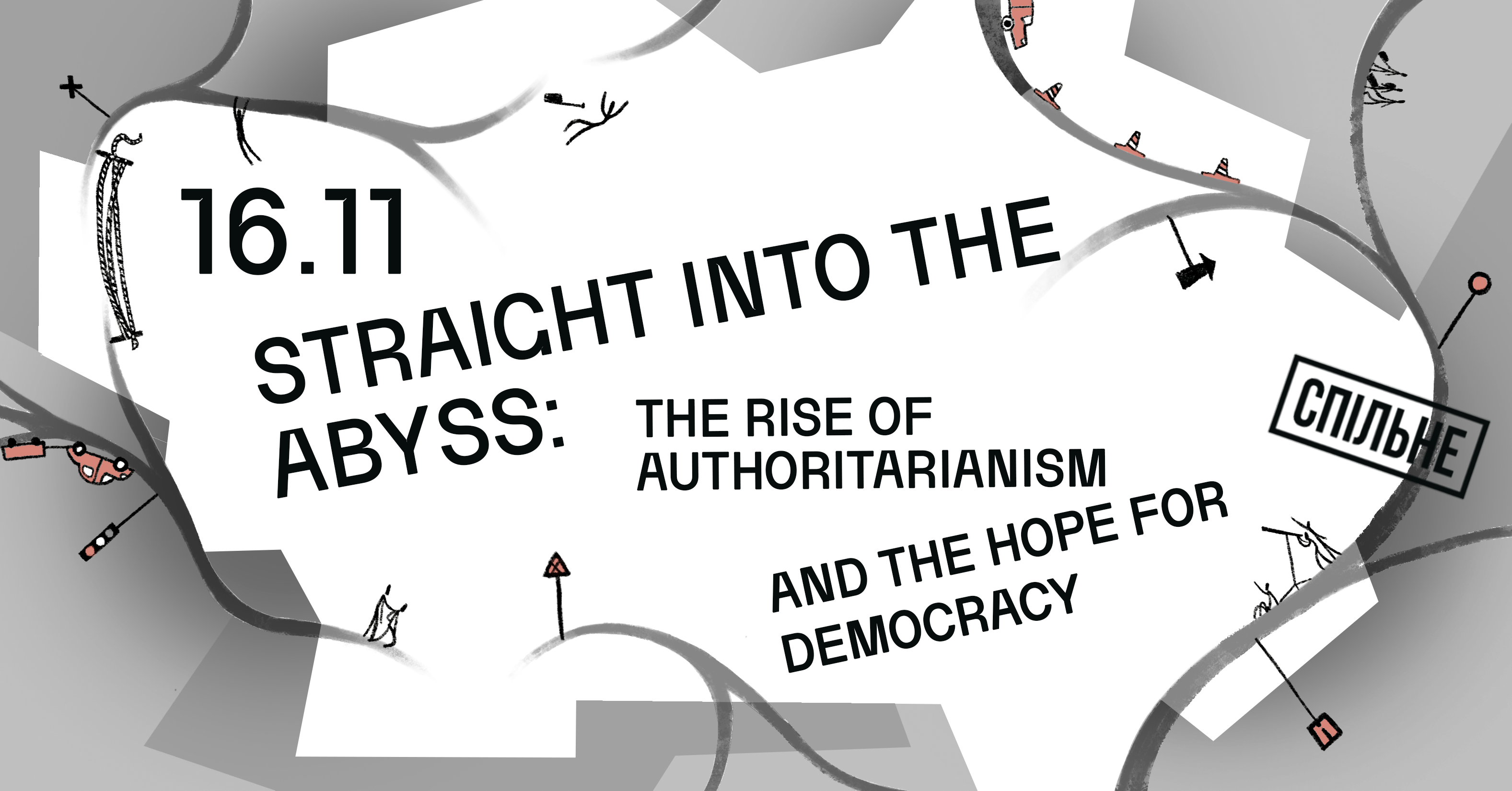
The crisis of universalist and democratic values, institutions, and emancipatory movements has been unfolding for decades. Growing economic inequality, the dismantling of the welfare state, and the climate catastrophe have made more and more people vulnerable, creating fertile ground for an authoritarian backlash.
Russia’s war against Ukraine has become a catalyst for these processes. It has exposed not only the fragility of the security system but also the depth of the political and moral crisis the world now faces. Against this backdrop, forces combining authoritarianism, neoliberal economics, and cultural conservatism are increasingly entering the struggle to rewrite the rules of global politics — from Putin, Trump, and Modi to the Alternative for Germany, National Rally, and other far-right populist movements.
At the third panel of the conference, we will discuss how democratic institutions are transforming amid global instability, what challenges emancipatory movements face, and whether a renewed understanding of European Enlightenment can serve as the foundation for a new progressive project.
Speakers:
-
Ilya Matveev, political theorist, researcher of authoritarian neoliberalism.
-
Alain Lipietz, economist, former research director in the Center National de la Recherche Scientifique (France), former Member of the European Parliament for the Green Party.
-
Valia Petrova, researcher.
-
Olha Lushankina, sociologist, activist of the Ukrainische Linke Initiative, studies right-wing radicalism, migration and gender.
Moderator: Denys Gorbach, researcher at Lund University.
The Dilemma of Democracy: Participation and/or Procedure
November 16th, 17:00 (EET)
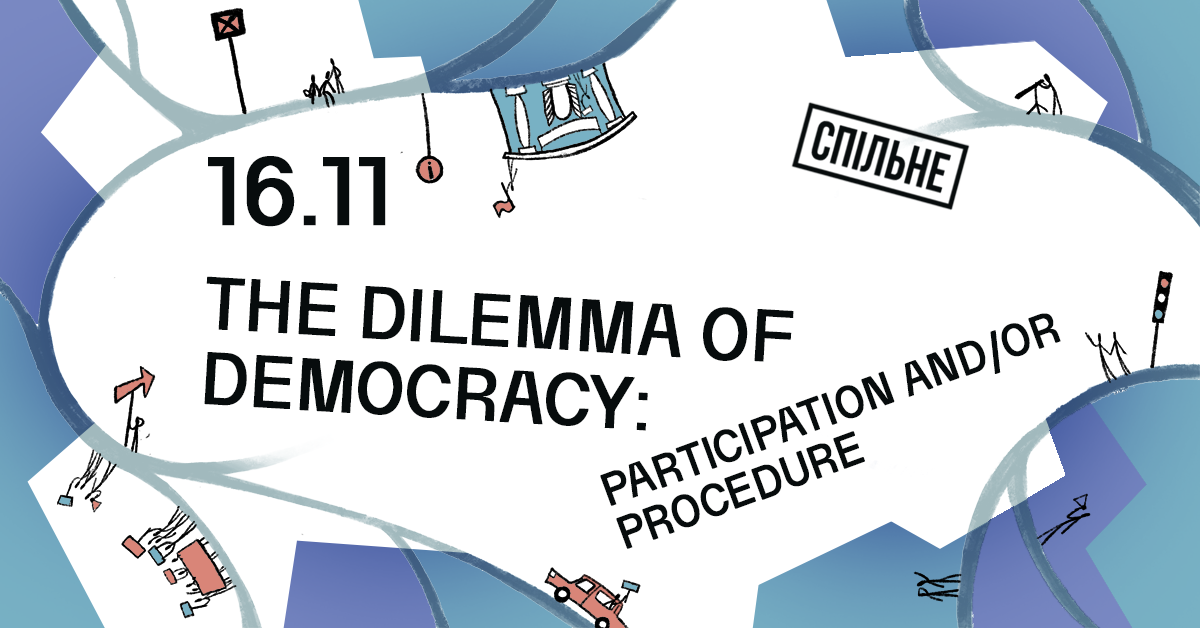
What is true democracy — a set of formal procedures or the living participation of people in collective decision-making?
In times of political, social, and economic crises, democracy breaks free from the walls of parliaments. It manifests itself in the streets, in protests, in workplaces, and in the everyday struggles for dignity and rights. But what does it mean to be politically and socially engaged in relatively peaceful times?
At the final panel discussion of the conference, we’ll talk about:
– the role of participation in building a socially oriented society;
– whether democracy can exist without active civic involvement;
– and whether participatory democracy can be an answer to the right-wing turn Europe and the world are currently facing.
Speakers:
-
Gigi Roggero, researcher, theorist of autonomism (Italy).
-
Irina Karamarkovic, sociologist, activist (Austria).
-
Oleksandr Kyselov, migration researcher and publicist (Sweden).
Moderator: Mariia Sokolova, researcher of the Ukrainian Centre for Law and Crime Research and editor of Commons.
All panel discussions will take place online on our Facebook page.
Everyone who registers in advance will receive access to simultaneous interpretation in Ukrainian and English.
Links for registration and details about each panel will be published in the Facebook events.
